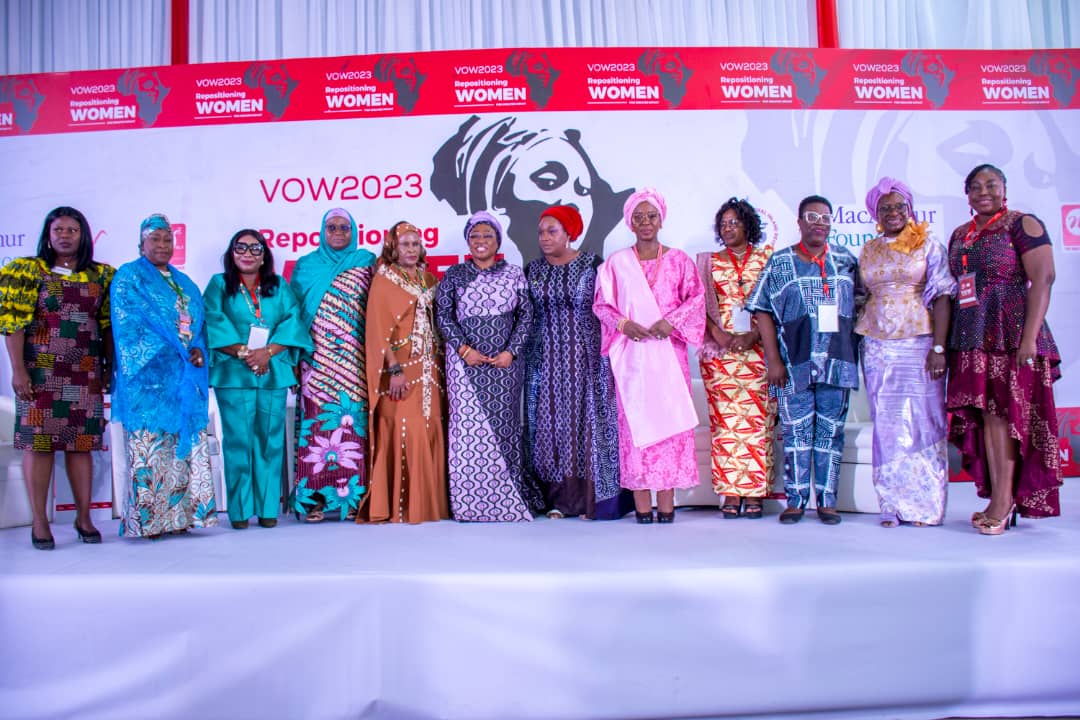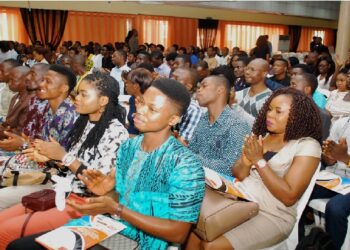Stakeholders on women’s clamour for gender balance converged in Nigeria to restrategise on their repositioning in leadership and governance for greater impact in the society.
These stakeholders at the seventh Voice of Women conference and awards (VOW2023) in Abuja, stressed the need for more visibility women to ensure good governance and development in the continent.
Erelu Bisi-Fayemi, VOW2023 Chairperson, noted the challenges affecting African women and girls, however, noting the progress made in changing political landscape in some countries.
” In spite of the many challenges that we continue to face as African women, we have managed to make the case for women’s leadership.
” And in several countries, we have changed political landscapes in Liberia, Rwanda, Namibia, South Africa and Kenya to mention a few,” she said.
She noted that despite that Nigerian women were among the better educated and wealthiest in Africa, it has not translated into political power, featuring poorly on most global indicators.
She said: “The most recent Global Gender Gap Index 2023 ranked Nigeria130th out of 146 countries.
“Nigeria has one of the highest maternal and I can’t mortality rate in the world at 12 per cent of global figures, highest number of child brides at 22 million, which is the highest in West Africa and 11th highest globally.”
She, listed factors mitigating women’s access to political leadership and decision-making to include cultural and attitudinal barriers, inaccessible political machineries, finances, violence and intimidation and lack of visibility.
She, therefore, stressed the need to change the narrative, be committed to social change, qualitative legal and policy frameworks that can remove oppressive patriarchal norms and values.
Abdulrahman Abdulrazaq, Kwara state Governor and Chairman, Nigerian Governor’s Forum, noted the role of women in his administration which is focused on gender mainstreaming in the state.
He said: “In Kwara, women are in charge, with 56 per cent of women making majorities in the cabinet.
” So, as Chairman of NGF, in partnership with Governors Wives Forum, women can constitute a policy where for example states and constituencies that elect women into legislative houses can benefit financially, so you can assume any amount.
” This way, states and constituencies will go for the money, this is applicable in fiscal responsibility where we are told that if you publish your budget, you get two million dollars. This is enriched governance and capacity building.
“So, if we have such programmes in gender issues, I’m certain that many constituencies will go for the money, that way more women will be brought to the table to make the right decisions and make the change.”
Dr Salma, Ibrahim-Anas, Senior Special Adviser to the President on Health, stressed that women should be on the table where development plans are rolled out.
Ms Toun Sonaiya, Cheif Executive Officer, Women Radio 91.7 fm, stressed the role of the media in promoting women’s political participation in Nigeria.
Dr Margaret Karungaru, Commissioner, National Gender and Equality Commission (NGEC), Republic of Kenya, stressed the need for women to support each other to ensure Inclusivity in all areas.
Similarly, Mufuliat Fijabi, Executive Director, Sustainable Gender Action Initiative (SGAI), urged women to restrategise on ensuring the five gender bills that were rejected at the National Assembly are reconsidered for passage.




